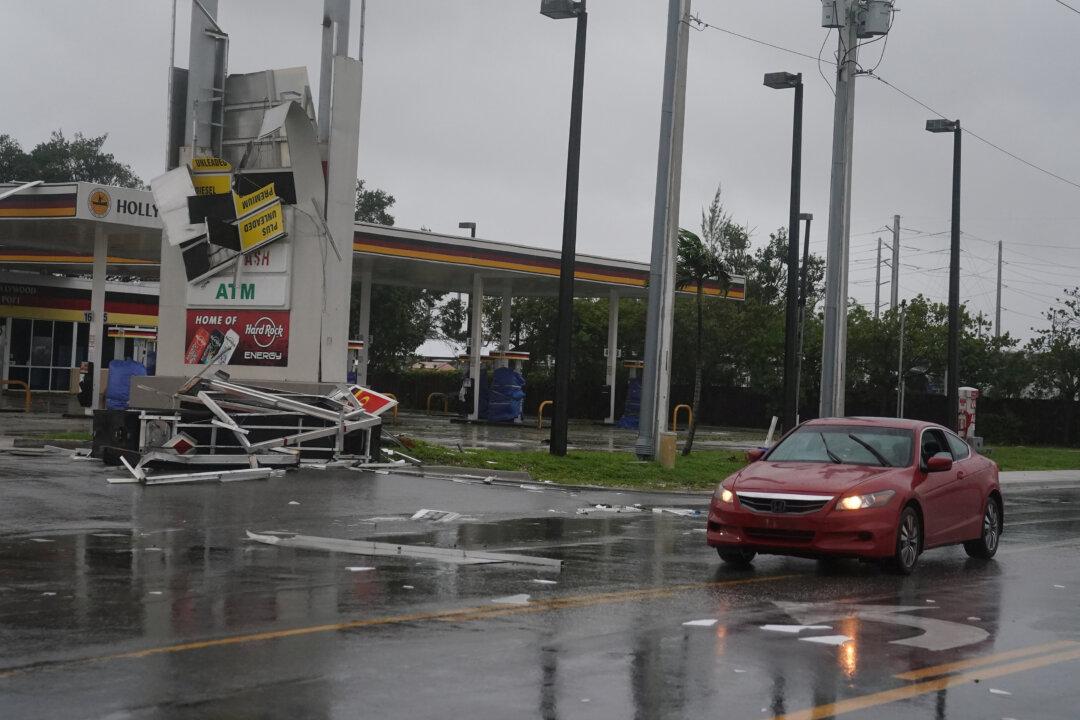Hurricane Irma knocked out power to about 5.8 million homes and businesses in Florida, even as the storm weakened as it crept up the state’s west coast, according to state officials and local electric utilities.
Irma hit Florida on Sunday morning as a dangerous Category 4 hurricane, the second-highest level on the five-step Saffir-Simpson scale. It gradually lost strength and weakened to a tropical storm by Monday morning as it headed toward Georgia, the U.S. National Hurricane Center said at 8 a.m. EDT.





